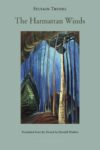
Canadian author, Derek McCormack, writes like Vincent Price possessed by Elsa Schiaparelli: minimal, obscene, cartoonish. His early works include Dark Rides (1996), The Haunted Hillbilly (2003) and The Show That Smells (2008). In 2011, McCormack was diagnosed with abdominal cancer. Since then, he has published The Well-Dressed Wound (2015) and Castle Faggot (2020), both with Semiotext(e), and the essay collection Judy Blame’s Obituary: Writings on Fashion and Death (2022) with Pilot Press. I sat down with him on Zoom to speak about writing and the locus of his many obsessions: country music, Halloween, and fashion.
Matthew Kinlin: What country music did you listen to growing up?
Derek McCormack: I didn’t listen to it growing up. My parents did. I was a punk! Then I was a New Waver, then a New Romantic, then a Goth. I started listening to it when I moved to Toronto as a teenager. I liked Lefty Frizzell and Hank Williams. Dolly Parton and Loretta Lynn had always been OK in my books, in part because of their dresses. Loretta Lynn, especially. She always seemed to be wearing wedding dresses in dreadful colours. It was fantastic. I remember going to see k.d. lang at this hockey arena in Peterborough and the crowd was so hostile—I loved it. I loved the hostility and her need to win them over. It all felt very dramatic. I remember I had the flu and was high on cold meds.
When did country music meet fashion in your writing?
In Dark Rides, there’s a story where a kid makes a shirt with glitter on it for a Hank Williams’ concert. I think, in retrospect, that for me was a seed. I don’t like that word: seed. OK, so if it’s glitter, I’m going to call it a glimmer. In that story was the first glimmer of fashion and it was a thread I followed.
How does writing relate to fashion?
Writing about fashion is tricky because fashion’s so stupid. To me, fashion is only really great in these flashes that come and go like that. And it’s slippery.
What is seductive or compelling in those moments?
I think what is seductive is the elusiveness. What’s great about fashion is that it’s dead before it’s come to life. It comes to life in those moments when it’s already dead. It’s already gone. It’s so fleeting, which isn’t to say that in the moment it’s not fully alive. I always think that fashion and fags are the same, in that we are always already dead. And you have these beautiful glimmers of afterlife or an afterlife that comes before life. It’s an eeriness, otherworldliness. So, I think it becomes very tricky to write about something that is faster than you, flashier than you, more feckless. I mean fashion just disappears. It just strands you immediately. If you put any faith in it or hope or affection, it’s pfft—gone. It’s gone because it doesn’t want you, because it doesn’t give a shit about you. The houses die, the designers die, the styles die. Everything about it is unsteady so writing about it is a real challenge. It’s both deadly and hard to take seriously, which I love. A lot of people don’t take it seriously, so if you do, it’s a bit of a provocation. But when people take it seriously it can all become tiresome and cartoonish. Because it’s fashion.
It’s a paradox that is compelling and stupid.
I think when you get too serious about it, you start talking about expressing yourself or expressing emotions. Expression is dull and I think it’s a trap. Fashion’s the anthesis of all those things. So, when you start talking about it in those terms, it’s either because you’re tired and desperate to find a story or you’ve just stopped matching its frenetic energy.
It’s vaporous to write about. And ghosts are an appropriate metaphor that you come to.
It’s vaporous and fleeting but the thing is, when a ghost frightens you, it’s the realest thing in the world. When fashion seems real, it’s as solid and important as anything.
How did your obsession with Halloween begin?
I know people identify Halloween with dressing up and having the pleasure of being someone else. I never felt that. Maybe because in my mind I was always becoming someone else. A a kid I thought at different times that I was a witch; I was a werewolf. It never occurred to me that life wouldn’t be as porous as that. What I loved about Halloween was the sense that the day was different, the air was different. I still get that on Christmas Eve sometimes. Halloween, like Christmas, was like being part of the shittiest theatre guild in the shittiest little city. Even the costumes I wore were all so makeshift and middling. I love that. I think Christmas is different, as I did have the experience of going to Toronto and seeing big department store displays.
Did it feel romantic?
At the time, I would always over-romanticize whatever was happening. I could persuade myself that something happening to me in my life was incredibly important to other people. I guess this is the delusion of fashion. I remember in high school I started wearing my grandmother’s rhinestone necklaces and bracelets and then I got a copy of The Face in 1983 and they were like, “Everyone is wearing rhinestones.” And I thought, “I did that, I’m the trendsetter of this trend!” And there’s nothing that could have dissuaded me. Not the fact that no one had ever heard of me, that no one cared. Fashion gave me the chance to totally fool myself. That’s beautiful, I think, and also brutal, and dumb.
In Castle Faggot, you say: “Shit. Shit. The writing’s shit.”
Shit is many things to many people, or at least it’s many things to me.
In that book specifically, there’s a lot of turds. I haven’t counted but there’s probably over a hundred turds. At least.
Part of that had to do with my cancer too. I spent most of my life quite snobbishly telling people their taste was shit and then at some point I was just a person covered in shit that couldn’t stop shitting. The joke was on me, and I just kept laughing. In Castle Faggot, I don’t know who I’m laughing at or what I’m laughing at, but I just keep laughing.
And there’s a lot of jokes. What do you call a faggot hanging from a chandelier? Crystal.
So dumb. At the end of paragraphs, I’d put a stupid pun or a stupid riddle. I still do that. I like on the page how wrong it is. It’s really something you would do in a kid’s book. I really appreciate that when kids are like eight or ten, they buy joke books. I really think that’s a grand thing. That kids not only find these hoary jokes funny but that they memorise them and retell them. I also like how fully they stop the flow of my writing. And I also like in writing that if you put a really bad joke in, it not only stops the writing, but it distracts the reader from the fact the paragraph was going nowhere.
The books are obviously obscene, but it is just like children telling jokes.
I’m so glad you say that. My nephew is twelve now. I dedicated Castle Faggot to him. People say, “Oh, you’re really on his level.” I’m like, “No, he’s already more mature than me.” He’s started thinking about girls and dating and traveling and I’m still a complete flop in those departments.
He’s overtook you.
He has way more of a future than I do, but for a brief period when I taped a fake turd on my head, we were totally in sync. I’m grateful.
It kind of reminds me when John Waters had children read extracts from Pink Flamingos. You can see how children get the same level of humour that some fags have.
And children mangle language gleefully. I love when they pluralise things improperly and misuse language. The foolishness. Also, I find that kids have a lot of conversations that are not about anything but are just words in service of a very big emotion, anger or frustration, or it’s just talking for the sake of talking. I think I often go on like that. I feel like my paragraphs are built of hot air. They are just balloons ready to pop and I am just blowing a little more hot air into them knowing that it’s doomed and they’re going to bust.
There’s a sense of failure.
Yeah, I mean, what is a balloon? It’s just the worst, nosiest piece of waste in the world but that’s what my paragraphs are like. Who likes balloons? Little kids, for a very small period of time. When the writing is going well, it feels like I’m blustering.
But you enjoy the bluster.
I’m basically saying that these words, my words, are useless. They are like plastic pieces of a gameboard or glitter falling off a piece of chalkware. That’s when I like language.
You see it as decoration.
Yeah, it’s a life-or-death decoration. But mostly death. Can you imagine staking life or death on the most ridiculous crap? That’s what I feel like my writing is. I’m staking my time and career on the dumbest decisions. Deliberately dumb. Being deliberately dumb is one of the great pleasures of my life. I do it every day.
You speak about life or death there. How are the books entwined with your cancer?
I remember when I got cancer, I was working on Castle Faggot. During my recovery, I dropped Castle Faggot and did The Well-Dressed Wound. I think because it was easier to write because I used punctuation as a plot. It seemed like something at first glance but then it disappeared on the page. The Well-Dressed Wound was a scream., a dying scream. I went back to Castle Faggot because I realised I had a more time to live. But I think the scream I started in The Well-Dressed Wound is still there.
In some of your work, you mention the decadent writers. Do you feel a spiritual connection?
Baudelaire is important because I read him in high school. Flowers of Evil, Paris Spleen. I always carried this image of Robert de Montesquiou in my mind. In my mind, he made his apartment into a dungeon and it had bats all over. And to my great disappointment, when I went back to read about him, it wasn’t as spooky as all that. So, then I had to find the source texts that really got him wrong or misreported his decorating sense. Those were the ones I wanted to believe in. I really needed to think of his apartment as being a carnival attraction, a dark ride. Also, I think Montesquiou’s poetry is just terrible and I admire him for being so terrible. And I’m so moved he came to New York and did these lectures on the most inane things, like a certain stone, or a certain flower. Just a total waste of time for everyone involved. I really admired that, the waste of time and intelligence. So yeah, the decadents have always been with me because I see them as amazing Halloween costumes. I think in Castle Faggot, it is very clear I don’t know Paris. I have an idea of what Europe is like from a theme park.
You like writers that push the patience of their readers.
Yeah. I like writers that are using words in the way they would be embroidering a jacket or putting up wallpaper.
In your collaborative book, I Am Not Just a Faggot, I Am a Faggot Like William E. Jones, you mention the films of George Kuchar, Jack Smith and Kenneth Anger and how these films feel Christmassy because they used Christmas lights.
You know William is a scholar of experimental films, he’s not only a great filmmaker. And when I pointed out how all those filmmakers use Christmas lights, it was something that he had never thought of and I was so impressed with myself. And I was so happy I could contribute anything, even the smallest thing. And that I could drag all these great filmmakers back to my little obsessive corner, reduce them that way. I’m still really proud and that you read it and mentioned it makes me happy. I feel that I accomplished something. If I die tomorrow, someone might in twenty years might say, “McCormack was the one that pointed out they used festive fairy lights on those films.”
You deserve a footnote.
If I could be a footnote of a footnote and that was what it was, I would feel like I’d done more than I thought I could ever do. More than anyone expected of me, for sure.
And did these films help to shape you?
Those films helped to shape me in that I had only read about them. I read about Jack Smith, George Kuchar and Kenneth Anger for years before I ever saw a fucking frame of them. Those films are very important to me, in that I am the classic small-town faggot that considered these films important before I had ever seen them. And then when I did see them, I had a whole explanation premade in my head why they mattered.
In the interview with William E. Jones, you said another line: “Gay culture is dead,” which I valued.
I want to hear what you valued in that. Tell me.
I don’t know what gay culture even is supposed to be anymore. What is there? Privatization of spaces. There are bars for drinking. Some interactions, but the apps have taken over everything. We have a lot of nostalgic ideas about gay culture, lots of things that refer back to the 70s and 80s and we talk about that time a lot. But I don’t know what it is now and feel in an uncertain place with that.
I think you’re correct in saying you’re not sure because I think that’s the condition of the culture: no one is sure. When I say gay culture is dead, I wonder if it was always dead. For me, it’s like fashion. It’s always already dead. That’s the condition of it being gay culture; we are seeing its final phosphorescence. When I was young it meant Lorrain and Proust and Genet. We are always seeing the end of it or the death of it or the spirit of it.
You’re always at the end of the history of it.
It’s always gone. And even in their day, they were gone.
There’s that film, The Green Ray. The Rohmer film. Apparently when the sun sets, you’re supposed to see a green ray sometimes in the sky.
Oh god, that’s beautiful. It reminds me of my friend Vincent Fecteau. He was once in a club in San Francisco and the name of the club was spelt out in lights, but you could only see it when you weren’t looking at it directly. It was kind of like a hologram. And he was like, “For me, that was gay culture. It was something you catch out the corner of your eye, but you can’t find it when you look it.” There’s a good chance I got Vincent’s story wrong, too, because that’s another aspect of gay culture: embellishment. It’s funny you mention the word nostalgia. I am a sucker for nostalgia. I am always looking for something to feel nostalgic about. Maybe that’s part of the gay mindset. Nostalgia for nostalgia. There’s something very appealing to it, I don’t know if it’s actually lost.
Gays are quite melancholic. They might be mourning for something that might never have existed. But there’s this feeling.
Yes, at least the gays I know. I don’t know where melancholia fits into queer culture. I’d be curious to know. And for me, the interest is: is everything I like dead or everything always already dead?
You think about death a lot.
Yeah. I think about it all day long. I think about it first thing in the morning and last thing at night. At times, it gives me a spark and at times it keeps me in bed for weeks. I have a hard time managing my morbidity.
When you get the spark, what is that like?
I guess I should differentiate between reading and writing about death. I mean writing for me is always a matter of deluding myself. There’s some way I can get pleasure if I’m just basically fabricating and lying. I’ve been reading philosophy and I think that’s largely because I am looking for someone to tell me how to think about death that is not frightening. I’m looking for someone to give death a makeover. Or to produce something of death I can wear and feel good in it. Or to make it pretty. But I guess everyone is trying to think about ways to make death less frightening.
We all have ways to trick ourselves every day.
Yes, and I guess in writing, the pleasure is I know I am tricking myself.
And I guess in terms of stories, such as The Show That Smells and Castle Faggot, you do often dramatise that by having characters that often make some kind of Faustian bargain.
That’s so interesting you say that. That’s true, I’ve never thought of that. Yeah, I mean in The Show That Smells, and even in Castle Faggot, the bargain is if you make fun of death enough; it will leave you be? Have a laugh with you? I don’t know what the bargain is but if death is décor, then you can die an interior decorator.
There’s a bargaining stage of grief. You make bargains with invisible forces. You make bargains with God. You make bargains with entities.
So, I’m so glad you said that as yes, that’s my entire existence. I’m at all times bargaining.
Finally, you’re obsessed about mirrors. The characters in The Show That Smells are trapped in a mirror maze.
So often I read people talking about a hall of mirrors like it’s truly deceptive. The fact about a mirror maze is the mirrors are cheap. They’re covered in snot, blood, and palmprints. If you’re not a child, you know your way out. What I like about mirror mazes is they should look like Versailles but in fact they’re tawdry and don’t work. They only work if you let them work. But that’s the perfection of the carnival. You have to give it the mystery that it claims to have for it to work and have any charm at all. But in demanding that you make it mysterious, it exerts a charm you can’t conjure. It’s a constant give-take with the garbage of our culture to have it be magical. I guess what I would like people to say about my books is they are garbage that sometimes seems magical.
There’s a line in your David Altmejd interview: “I also love that the jewellery doesn’t have to be a diamond; it can be some dumb dime-store rhinestone.”
If you offered me a diamond, I would take it. And I would pawn it and I would buy crap. I would buy rhinestones. I always remember this Margiela rhinestone necklace and the rhinestones had fallen out. There were just claws where stones had been. That’s fashion—you can get away with that shit and people like me will dream of it.
Matthew Kinlin lives and writes in Glasgow. His published works include Teenage Hallucination (Orbis Tertius Press, 2021); Curse Red, Curse Blue, Curse Green (Sweat Drenched Press, 2021); The Glass Abattoir (D.F.L. Lit, 2023); Songs of Xanthina (Broken Sleep Books, 2023); Psycho Viridian (Broken Sleep Books, 2024) and So Tender a Killer (Filthy Loot, 2025).
This post may contain affiliate links.







